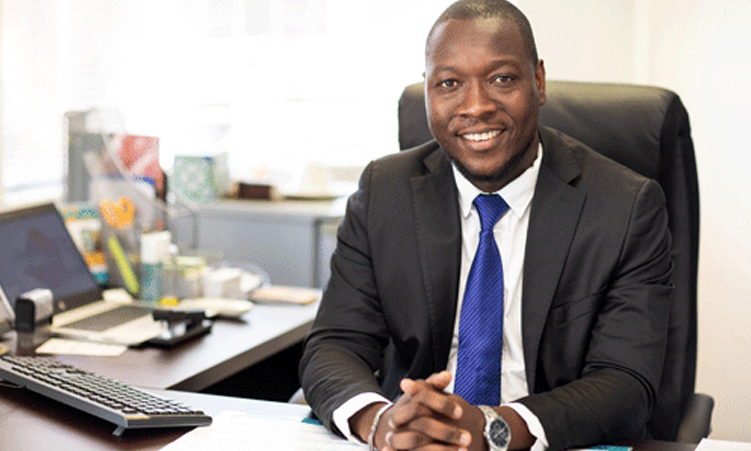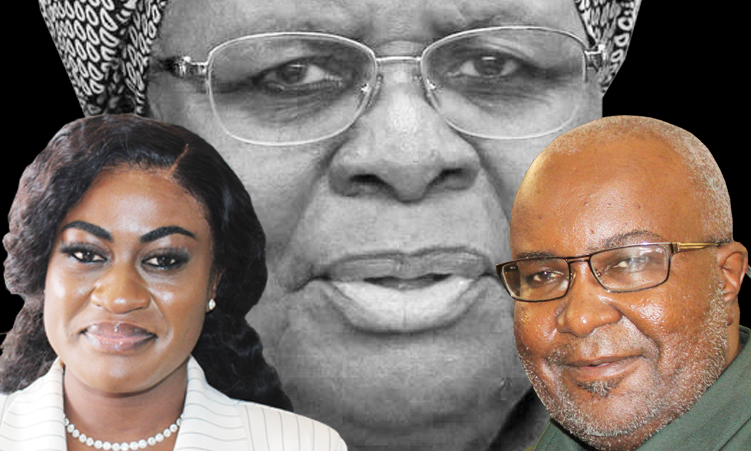NAMIBIA’s national rugby team will write another chapter in its proud history when it takes on New Zealand at London’s Olympic Stadium on Thursday evening.
It will be the fifth time that Namibia will compete on the biggest stage against the world’s best rugby nations while this will be the first time that Namibia takes on the world champions New Zealand.
Irrespective of the score, it’s a great achievement, making it one of Namibia’s most successful team sport codes.
Their success in the African qualifiers, and recently against Russia, Kenya and Zimbabwe has caught the imagination of the nation, which is now firmly behind the boys and following their progress with anticipation and bated breath.
They have united a nation and made us proud to be Namibians. They have established our place amongst the world’s best rugby nations, while they have demanded respect from their opponents.
It’s actually an unbelievable achievement if one just considers the numbers. Namibia only has about 1 000 senior players to choose from, with only a handful of those
playing the game professionally. By comparison, South Africa has more than 140 000 senior players and England 120 000.
But numbers don’t always tell the full story. New Zealand, for instance, is the most powerful rugby nation in the world but they only have about 30 000 senior players.
But rugby is a way of life in New Zealand and deeply rooted in its culture and history – a history of excellence spanning more than 100 years.
Namibia, too, has a proud rugby history spanning 99 years from 1916 when South African soldiers introduced the game to the country.
In the 1950s the then-South West Africa started playing in the South African competitions and by 1960 they were already a destination for touring teams to South Africa. In that year SWA hosted New Zealand for the first time, losing 27-3 and 10 years later they once again hosted the All Blacks, putting in a great performance before losing 16-0.
In the 1980s SWA played in South Africa’s top competition the Currie Cup and in 1988 shocked Western Province with a 24-21 win in Cape Town before finishing third overall.
After Namibia’s Independence in 1990 the team continued to excel, beating Ireland and Italy at home, but after the retirement of greats from that era like Gerhard Mans, Andre Stoop, Willem Maritz, Sarel Losper and Basie Buitendag the team’s fortunes gradually declined.
They failed to qualify for the 1995 World Cup, but bounced back with qualification in 1999 and have qualified for each World Cup since then.
As such, rugby is also deep-rooted in Namibian history and culture, especially in the Afrikaner community, although the Baster and coloured communities have also
developed strong roots and proud legacies over the years.
Reho Falcon won the Premier League titleforthefirsttimein2007,whileWestern Suburbs and Rehoboth Rugby Club won the title over the next two years.
To date, Suburbs have won the title three times and Falcons twice, and this year, Unam made history by winning it the first time.
The Unam team, led by former national coach Johan Diergaardt, have some great black players who could soon be in the national frame, and their success is bound to inspire more students to take up the game.
It’s this deep-rooted history and culture that has made Namibian rugby the success that it is in Africa and the world, but of course, much more needs to be done, especially in terms of grassroots development in all the regions of the country.
Facing New Zealand will be Namibia’s biggest-ever challenge and it’s unlikely that they will pull off a shock against the world champions like Japan did when they beat South Africa 34-32 last Saturday.
But this squad is well prepared and has a real chance of winning its first-ever match at the World Cup against the likes of Tonga or Georgia.
A first-ever victory will have a great effect on the nation and especially young boys, who will want to take up the game and emulate their heroes.
Just take a look at how Japan’s victory has inspired that nation, which will host the Rugby World Cup for the first time in 2019.
When asked about what their victory meant, Japan’s coach Eddie Jones put it succinctly:
“It means that many Japanese boys will now start playing rugby with the hope of representing their country at the 2019 World Cup.”
Stay informed with The Namibian – your source for credible journalism. Get in-depth reporting and opinions for
only N$85 a month. Invest in journalism, invest in democracy –
Subscribe Now!










